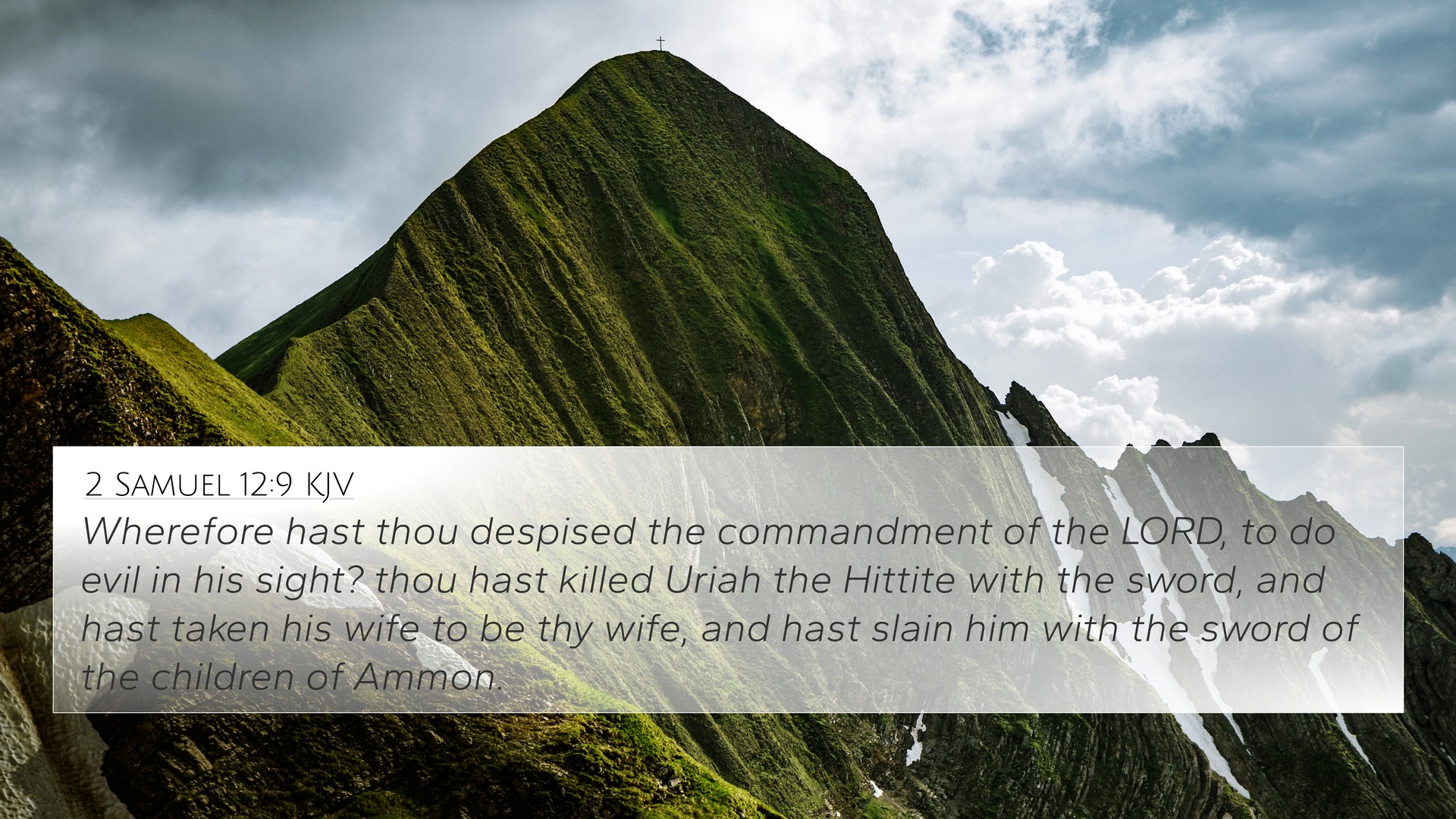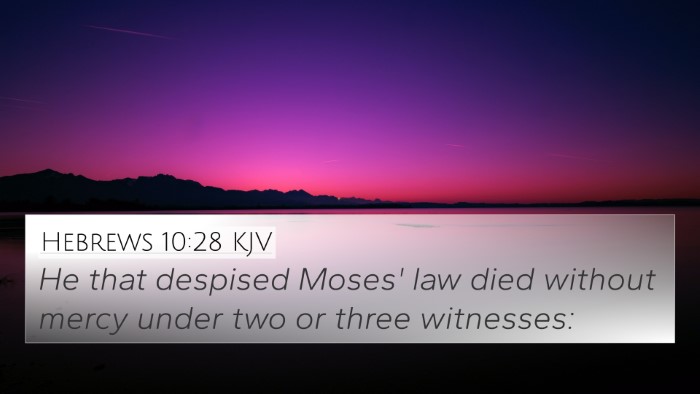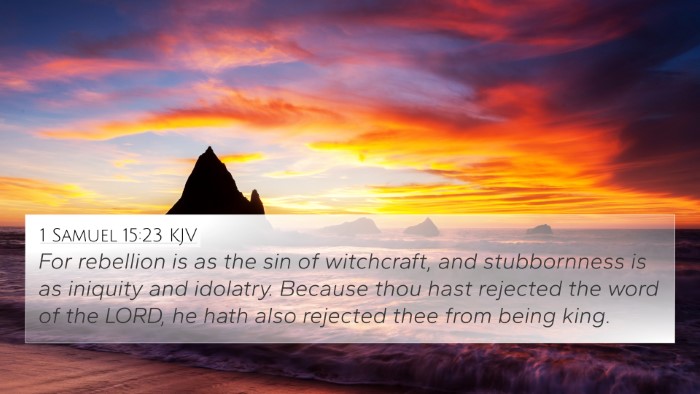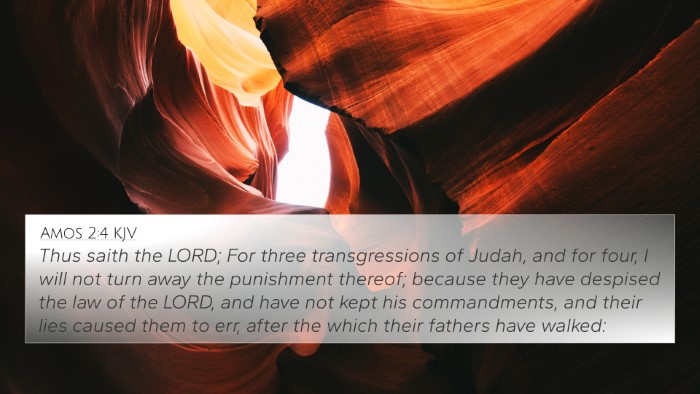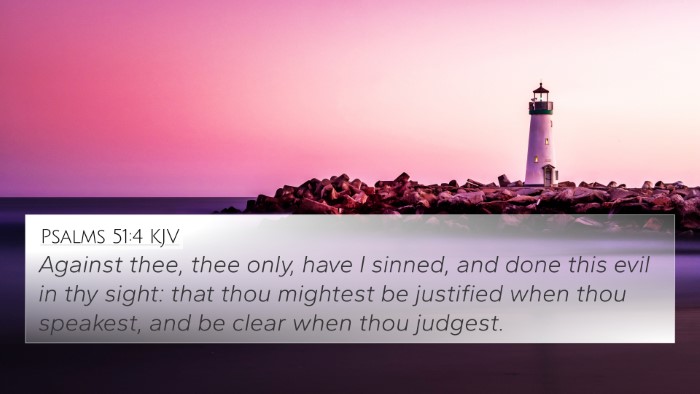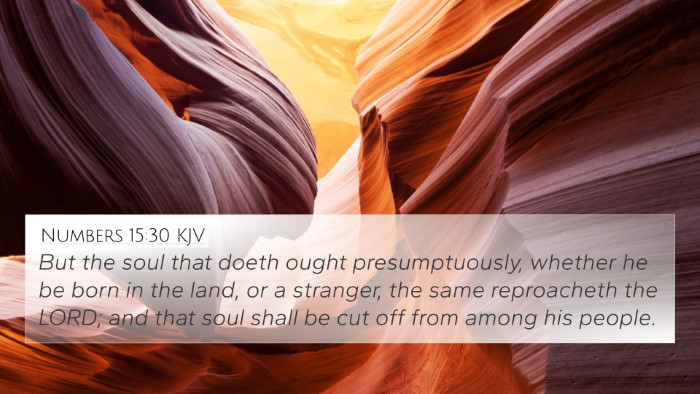Understanding 2 Samuel 12:9
2 Samuel 12:9 presents a solemn moment in the life of King David. The verse states:
"Why have you despised the word of the Lord, to do what is evil in his sight? You have struck down Uriah the Hittite with the sword and have taken his wife to be your wife, and have killed him with the sword of the Ammonites."
Context and Background
This verse is situated in the narrative where the prophet Nathan confronts David after the king's adultery with Bathsheba and the murder of her husband, Uriah. The gravity of the accusations reveals not only the moral failings of David but also the consequences of his actions.
Commentary Insights
Matthew Henry's Commentary:
- This verse emphasizes the seriousness of David's sins as it highlights a deliberate act against God's commandments.
- Henry points to the nature of despising God's word, noting that it implies a disregard for divine authority.
- Henry discusses the implications of David’s actions, particularly how they contrast with the expected behavior of a leader and God's anointed king.
Albert Barnes' Commentary:
- Barnes interprets the phrase "despised the word of the Lord" as highlighting David's rebellion against God's explicit commands.
- He draws connections between David's act and the resulting judgment issued by God through Nathan.
- Barnes suggests that God's displeasure is not merely due to the act itself but the defiance of God's rightful authority over moral law.
Adam Clarke's Commentary:
- Clarke reinforces the notion that David's actions are seen as a profound betrayal of trust, both in God and in human relationships.
- He notes that the consequences of such sins extend beyond personal guilt to encompass communal and national repercussions.
Relevant Cross-References
Understanding 2 Samuel 12:9 is greatly enhanced through cross-referencing with other biblical texts. Some notable references include:
- Psalm 51: David’s penitential psalm following his sin with Bathsheba.
- 2 Samuel 11: The account of David’s adultery with Bathsheba.
- Exodus 20:13: "You shall not murder," which highlights the moral law against killing.
- 1 Kings 15:5: Testimony about David’s righteousness, contrasting his grievous sin.
- Romans 12:19: A reminder that vengeance belongs to the Lord, contrasting with David’s actions.
- Galatians 6:7: "A man reaps what he sows," illustrating the inevitable consequences of sin.
- Proverbs 28:13: The importance of confessing and renouncing sin to obtain mercy.
Thematic Connections
The theme of divine judgment and human accountability is prevalent in this narrative. Other scriptures that resonate with these themes include:
- Luke 12:48: "To whom much is given, much will be required," relating to David's great responsibility.
- James 4:17: "To him who knows to do good and does not do it, to him it is sin," emphasizing the moral obligation of knowing God’s will.
Conclusion
2 Samuel 12:9 serves as a pivotal point in understanding the nature of sin, accountability, and the grave consequences of actions against God's will. As seen through the insights from Matthew Henry, Albert Barnes, and Adam Clarke, it is a reflection on how deeply one can fall from grace and the serious repercussions of despising God’s commands.
